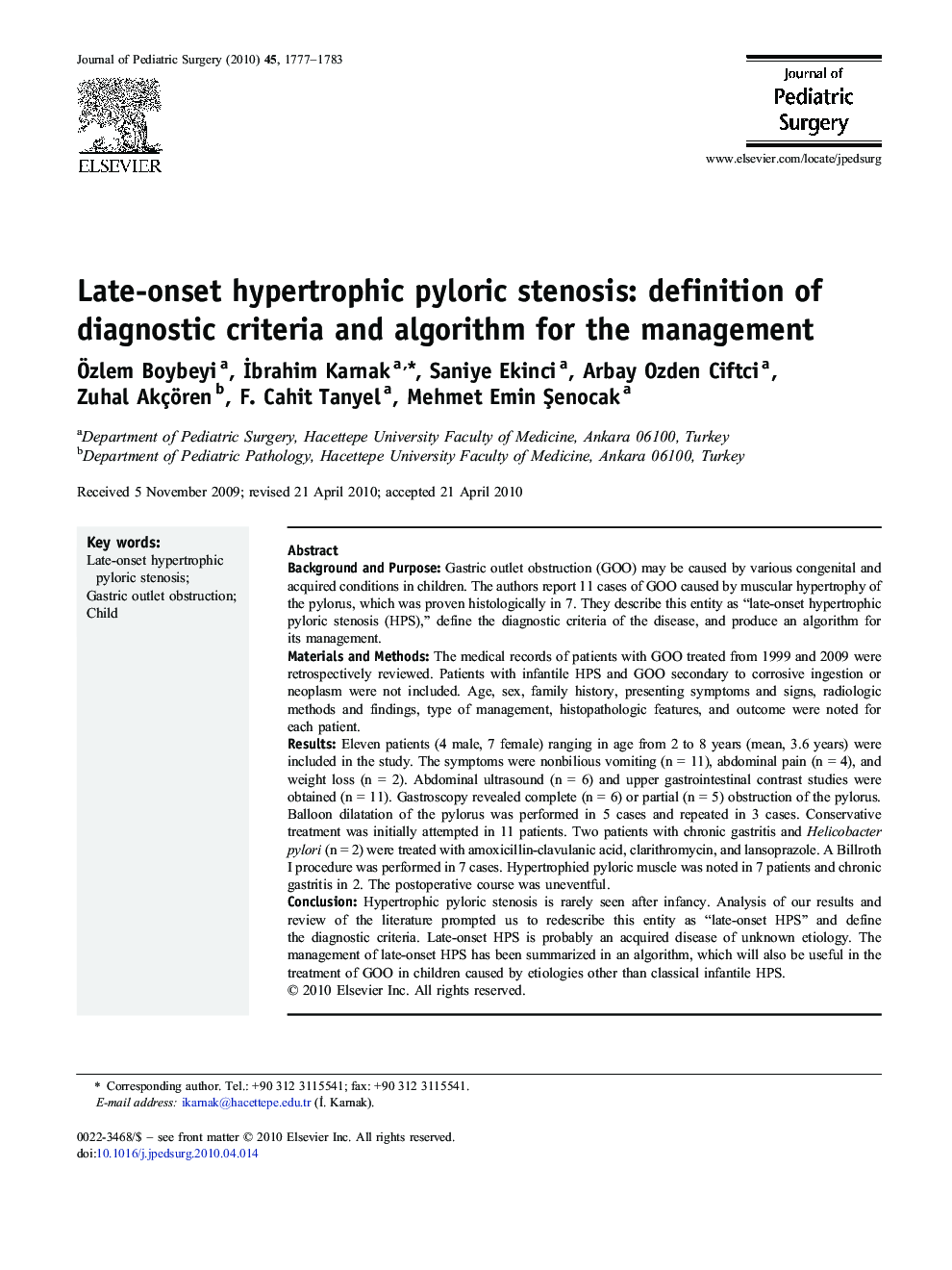| Article ID | Journal | Published Year | Pages | File Type |
|---|---|---|---|---|
| 4158365 | Journal of Pediatric Surgery | 2010 | 7 Pages |
Background and PurposeGastric outlet obstruction (GOO) may be caused by various congenital and acquired conditions in children. The authors report 11 cases of GOO caused by muscular hypertrophy of the pylorus, which was proven histologically in 7. They describe this entity as “late-onset hypertrophic pyloric stenosis (HPS),” define the diagnostic criteria of the disease, and produce an algorithm for its management.Materials and MethodsThe medical records of patients with GOO treated from 1999 and 2009 were retrospectively reviewed. Patients with infantile HPS and GOO secondary to corrosive ingestion or neoplasm were not included. Age, sex, family history, presenting symptoms and signs, radiologic methods and findings, type of management, histopathologic features, and outcome were noted for each patient.ResultsEleven patients (4 male, 7 female) ranging in age from 2 to 8 years (mean, 3.6 years) were included in the study. The symptoms were nonbilious vomiting (n = 11), abdominal pain (n = 4), and weight loss (n = 2). Abdominal ultrasound (n = 6) and upper gastrointestinal contrast studies were obtained (n = 11). Gastroscopy revealed complete (n = 6) or partial (n = 5) obstruction of the pylorus. Balloon dilatation of the pylorus was performed in 5 cases and repeated in 3 cases. Conservative treatment was initially attempted in 11 patients. Two patients with chronic gastritis and Helicobacter pylori (n = 2) were treated with amoxicillin-clavulanic acid, clarithromycin, and lansoprazole. A Billroth I procedure was performed in 7 cases. Hypertrophied pyloric muscle was noted in 7 patients and chronic gastritis in 2. The postoperative course was uneventful.ConclusionHypertrophic pyloric stenosis is rarely seen after infancy. Analysis of our results and review of the literature prompted us to redescribe this entity as “late-onset HPS” and define the diagnostic criteria. Late-onset HPS is probably an acquired disease of unknown etiology. The management of late-onset HPS has been summarized in an algorithm, which will also be useful in the treatment of GOO in children caused by etiologies other than classical infantile HPS.
